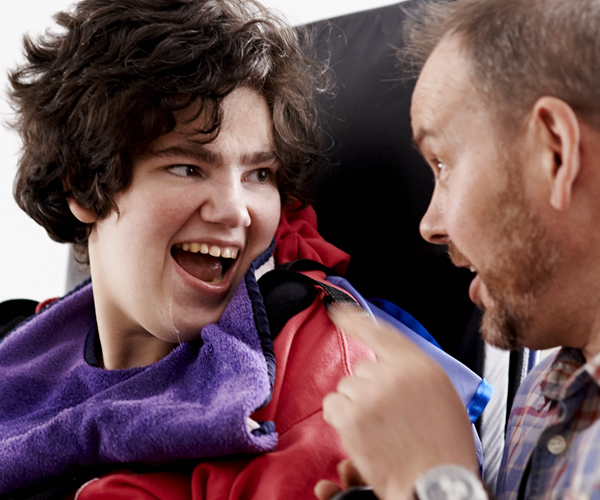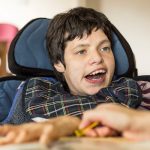Within This Issue
Our warmest welcome to the Winter Issue of PMLD Link. As you may remember, our last issue featured a call for contributions on inclusion and transforming lives, the central theme of PAMIS’ conference in June of this year. At this event, PAMIS launched ‘Profound’, a film produced and directed by the amazing production team at August Pictures. The film is deeply real and moving as it challenges our assumptions and definitions around the word ‘profound’. It promotes ‘profound’ as deep, wise, intense and expert. People with PMLD are recognised as educators and teachers in communication, compassion and care.
Attracting more than 200 national and international delegates, the conference had a strong focus on inclusion. With a focus on PMLD, many presenters shared their expertise in education, life transitions and emotional wellbeing. Extending these themes to practical considerations, the conference provided opportunities to discuss how our physical, environmental, cultural, creative and social spaces can be designed to promote inclusion. We wanted to parallel the focus of the conference, with this issue and I am sure you will agree that the following contributions, some of which are from conference presenters, share a wealth of insight.
As I read through this month’s contributions, our first article is written by the wonderful Scottish Storyteller Ailie Finlay. She has a passion for play and has been working for many years in developing innovative and creative ways of including people with PMLD in play activities, regardless of age. Her contribution has useful guidance on how to modify traditional childhood games for this group. In addition, Lynsey Robinson and Joanna Grace introduce us to their recent project, which values the person with PMLD as co-authoring partners. Following the theme of storytelling, our latest contribution from Karen Bunning, Nicola Grove and Jane Harwood shares an interesting perspective on how Storysharing® can influence lives in meaningful ways. Our very own Maureen Philip shares her passion for storytelling too, and introduces us to a variety of stories that aim to engage people with PMLD with stories derived from the oral folktale tradition. With more of a research focus, Joanna Grace and Andrea Silva assess the usefulness of storytelling guidance, which has implications for practice.
On the theme of transition and change, Marion McArdle, mother of Laura, shares her story of separation and the impact of this on her daughter’s health. My own contribution aimed to support Marion’s story with some important messages from research about embodied emotion and dysregulation. I really felt that these messages were further extended in Christina Vasileiou’s article on ‘Embodied Humanity’. In addition, Dianne Cantali describes her recent review of primary to secondary school transition and applied this to the needs of people with PMLD. She highlights the value of technology as a supportive tool. A comprehensive article on technology by Chas Mollet and Leonie Elliot-Graves features exciting and innovative ways of including people with PMLD in creative activities. Perhaps related to this, Roney Lee challenges us to consider the accessibility issues of our environments. Finally, Naomi Rosenberg reflects on years of visits to classrooms offering suggestions on what best enables individuals with PMLD to learn – some very valuable ideas for those who are new to this work.
It has been an absolute pleasure to co-edit this issue with Annie Fergusson and Jill Davies. We thank all of the contributors and hope you enjoy the final edition of this year.
Hannah Young
Guest Editor from PAMIS, leading on this special issue of PMLD Link




